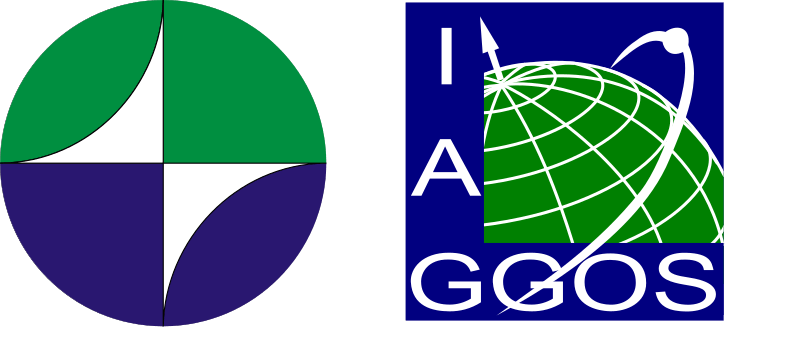BPS – GGOS Joint Working Group on
Consolidation of a best estimate GRS based on the adopted W0 of the IHRF
Chair: Urs Marti
Terms of Reference
The Geodetic Reference System 1980 (GRS80) is still the IAG conventional system for most applications in Geodesy and other Earth sciences. It was defined through the four parameters a (semi-major axis), J2 (Dynamical Form Factor), GM (geocentric Gravitational Constant) and ω (Angular Rotation Velocity). It represents the scientific status of the 1970ies and in its concept, the tidal systems and relativistic theories are not considered. Since its adoption, various inconsistencies have been introduced into geodetic standards and applications, such as new values for GM or a in the IERS conventions. In addition, this ellipsoid is not recognized by some communities outside the IAG. For example, the satellite altimetry and gravity field communities typically use different ellipsoid parameters, causing confusion for external users of geodetic data or products, and requiring them to implement transformations to make the data compatible when referenced to different ellipsoids. Moreover, in 2015, a conventional value for the gravity potential at sea level W0 was adopted by the IAG, which is also in contradiction to the definition of GRS80.
In a previous GGOS Working Group (WG) (2019-2023), several sets of parameters of a new best estimate GRS have been calculated by different groups. These calculations used different defining parameters and calculation methods. A consolidated and broadly accepted new GRS that could replace GRS80 is not yet ready to be published.
In this present WG, a consolidated set of parameters and formulas for a new GRS should be worked out and presented. This WG will study the necessity to work towards an IAG resolution to replace GRS80 as the conventional system and provide transformation procedures between the two systems. It will study as well the necessity to define and adopt a conventional global gravity field model for standard applications in geodesy, navigation and related topics.
This WG is assigned to the GGOS Bureau of Products and Standards (BPS) and works together with representatives of IAG Commissions 1 and 2, the Inter-Commission-Committee on Theory (ICCT), the International Gravity Field Service (IGFS), the International Earth Rotation and Reference Systems Service (IERS) and the Committee on Essential Geodetic Variables (EGV).
This WG will focus its activities on the coordination of the geometric reference frame (ITRF), the global height reference frame (IHRF), the global terrestrial gravity reference frame (ITGRF) and their temporal changes. The application of Earth orientation parameters and tidal models and the underlying standard and reference models has to be brought into consistency.
Objectives and activities
The main objectives and activities of this working group are to:
- give an overview of already published work and compare the results;
- develop the mathematical apparatus for computing all derived quantities based on the defining constants;
- derive improved formulas for computations and transformations in a suitable coordinate system, as well as the creation of relevant software tools for implementation;
- calculate consistent parameters of a new mean Earth ellipsoid and derived quantities based on recent values of GM, W0, J2 and ω;
- study the influence of long-term changes of the defining parameters;
- present a new, consolidated “best estimate” GRS with all the derived quantities;
- study the necessity to replace the global reference system GRS80 as the conventional system;
- advance the realization of a conventional global reference gravity field model (combined and satellite only);
- study the influence of Earth orientation parameters, tidal models and relativistic effects on the realization of a consistent global reference frame in geometry, height and gravity.
Members
Urs Marti (Switzerland), Chair
Jonas Ågren (Sweden)
Detlef Angermann (Germany)
Riccardo Barzaghi (Italy)
Ropesh Goyal (India)
Sergei Kopeikin (USA)
Christopher Kotsakis (Greece)
Jaakko Mäkinen (Finland)
Pavel Novák (Czech Republic)
Ilya Oshchepkov (Russia)
Georgios Panou (Greece)
Erricos Pavlis (USA)
Laura Sánchez (Germany)
Hartmut Wziontek (Germany)


